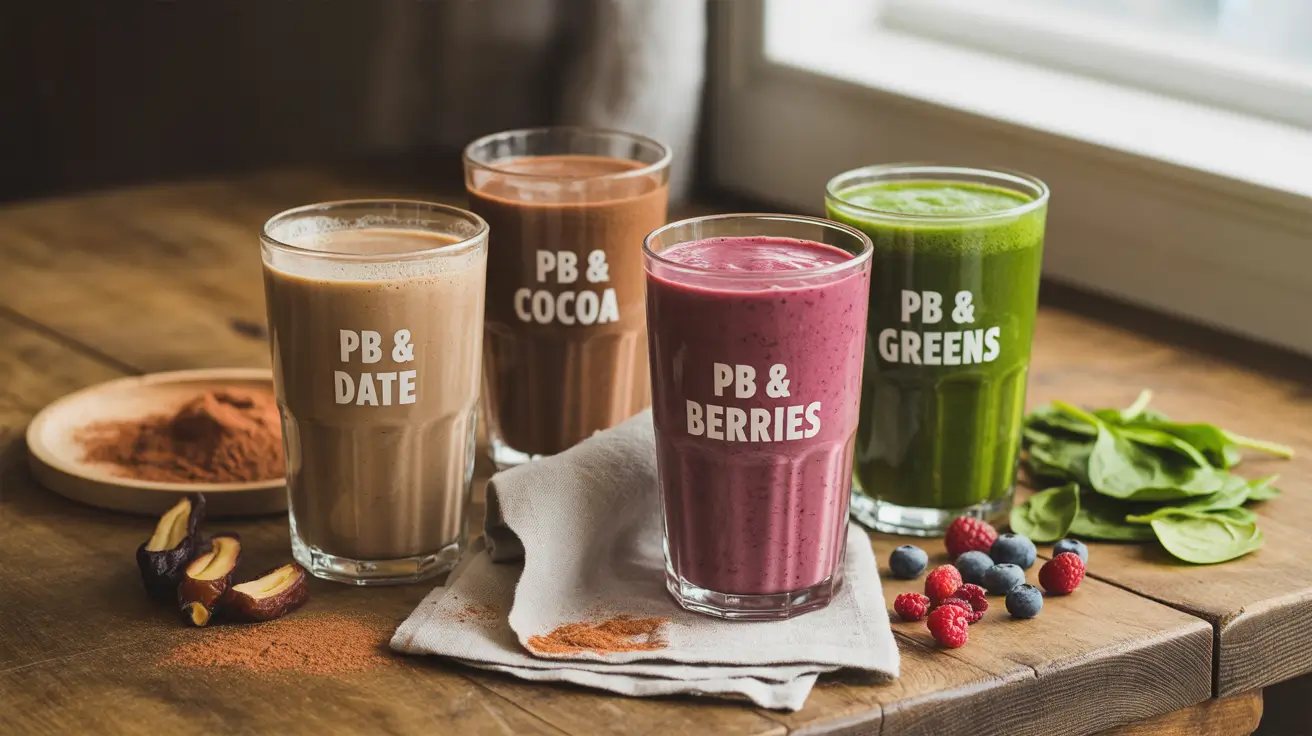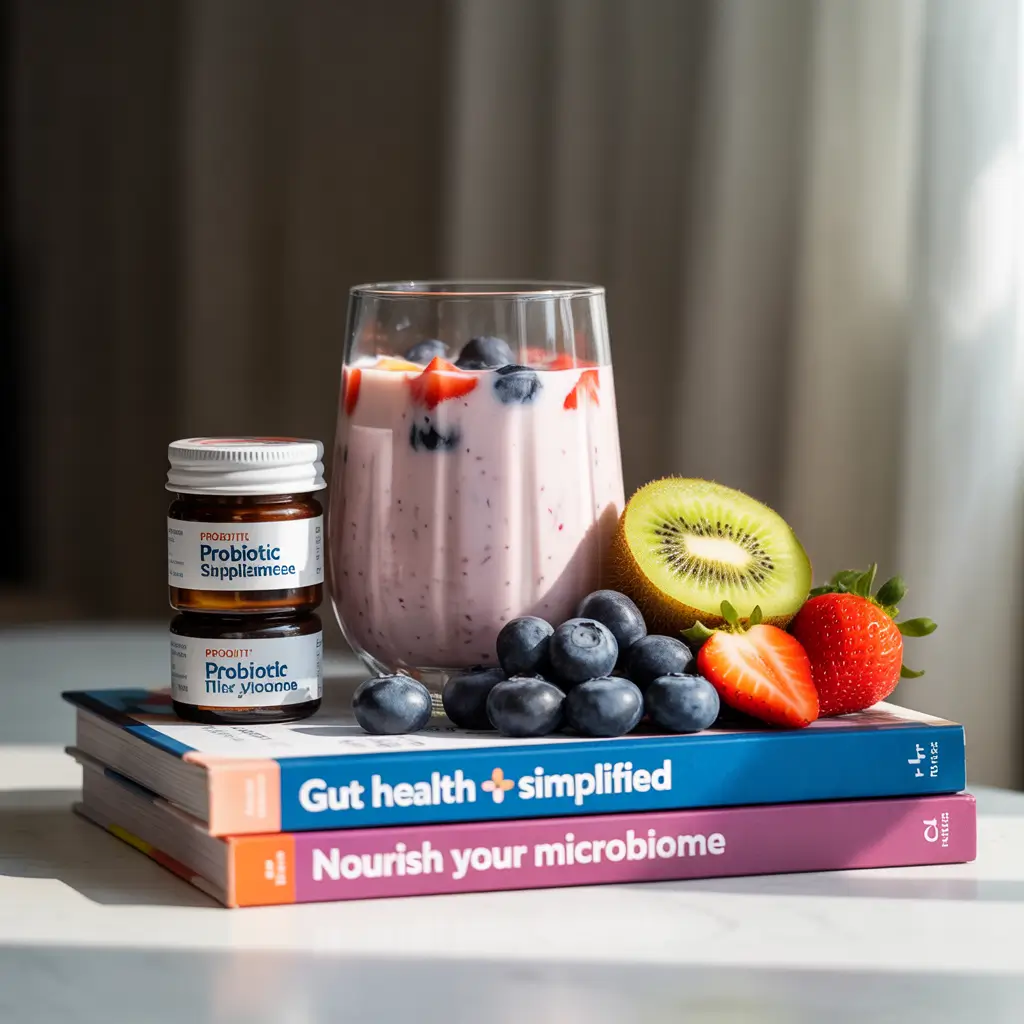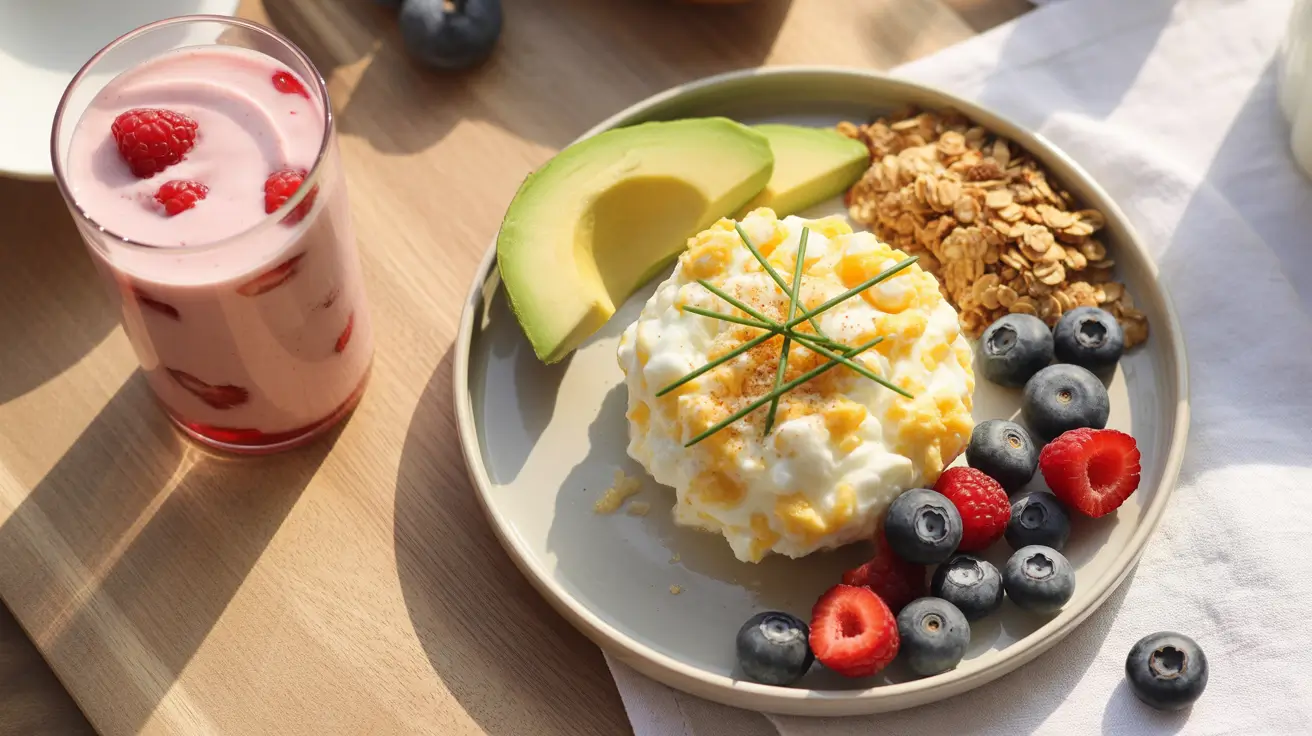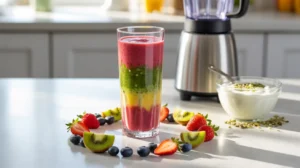High-Protein Breakfast Ideas You Can Actually Eat
You wake up hungry, but not for another sugar crash. A high-protein breakfast is the simplest way to stay full, support your metabolism, and keep your energy stable until lunch. When you start with 20 to 30 g of protein, you support muscle, manage hunger, and avoid mid-morning snacking. This guide shows you simple, make-ahead, and family-friendly high-protein breakfasts you can rotate all week.
In this guide, you’ll discover:
- what counts as a high-protein breakfast
- quick sweet and savory protein breakfasts
- a 6-day high-protein breakfast plan
- FAQs on meal prep and how to reach 30 g
What counts as a high-protein breakfast
A high-protein breakfast is any morning meal that gives you at least 20 g of protein in one sitting. Most classic breakfasts like cereal, toast, or plain oats only reach 6–10 g, which is why people keep searching for “high protein breakfast” – they want something actually filling.
Why aim for 20–30 g?
- keeps you full longer and reduces mid-morning snacking
- helps stabilize blood sugar and energy
- supports muscle recovery, especially after a morning workout
- works for both weight loss and maintenance because protein is satiating
Best protein sources for breakfast
- eggs and egg bakes or frittata cups
- Greek yogurt, skyr, or cottage cheese
- high-protein overnight oats
- protein smoothies or yogurt drinks
- tofu or tempeh for a savory, dairy-free option
Each breakfast below can be made to deliver at least 20 g of protein.
High-Protein Breakfast Recipes
Here are easy, high-protein breakfasts from ZikoRecipes you can rotate during the week. Each one can reach 20 g of protein, either on its own or with a small booster (yogurt, egg, or a protein drink). Many of them are no-cook and meal-prep friendly.
Sweet high-protein breakfasts (no cook / baked)
- High-Protein Overnight Oats (20–25 g)
Make ahead in jars. Greek yogurt + chia + high-protein milk. Add 1 scoop protein powder to reach 25–30 g. - Nut-Free Granola with Greek Yogurt (≈20 g)
For busy mornings and readers who want crunch. Use Greek yogurt or skyr under the granola. - Banana Cottage Cheese Pancakes (22–25 g)
Cottage cheese in the batter = more protein. Serve with 2–3 tbsp Greek yogurt or 1 egg to lock in 25 g. - Cottage Cheese Banana Bread (18–20 g per breakfast slice)
Good make-ahead sweet breakfast. Pair with yogurt drink to reach 22–25 g. - Blueberry Protein Muffins (18–20 g for 2 muffins)
Great grab-and-go. Tell readers to eat 2 muffins + yogurt for a 20 g breakfast. - 3-Ingredient Banana Muffins / 4-Ingredient Banana Bread / Eggless Banana Bread / banana bread recipe without baking soda
These are lighter in protein, but if you pair them with a homemade yogurt drink or 2–3 tbsp cottage cheese, they become a balanced breakfast. - Homemade Yogurt Drink (15 g, up to 20 g)
Light, probiotic, and super to complete another breakfast. Stir in protein powder or dry milk to reach 20 g. - Peanut Butter Smoothie Without Banana (≈22 g)
Perfect for “protein powder breakfast recipes.” Add 1 boiled egg to hit 28–30 g. - Healthy Smoothies
Use this post as a base and tell readers to add Greek yogurt or protein powder to make it 20 g.
Savory high-protein breakfasts (warm / filling)
- Baked Cottage Cheese Eggs (20 g)
Oven baked, meal-prep 4 days. Add a yogurt drink or smoothie to reach 30 g. - Protein Bagel Breakfast (20–25 g)
Use your protein bagels, top with cottage cheese or cream cheese + 1 egg. Dairy-free option: hummus + smoked salmon. - Gluten-Free Dairy-Free Breakfast (variable, add protein)
Good for readers with restrictions. Tell them to pair with yogurt drink / egg to reach 20 g. - Carnivore Breakfast (high protein by default)
For high-protein / low-carb readers. Link it here for people who don’t want oats. - High-Protein Oatmeal with Chia and Skyr (20 g)
Warm alternative to the overnight oats for cold mornings.
You can pair these savory breakfasts with a homemade yogurt drink, nut-free granola, or a boiled egg to reach 30 g of protein first thing in the morning.
Quick comparison table of high-protein breakfasts
| Recipe | Protein | Prep time | Notes |
|---|---|---|---|
| High-Protein Overnight Oats | 20–25 g | 5 min | No cook. Meal prep 3–4 jars. |
| Banana Cottage Cheese Pancakes | 22–25 g | 10–15 min | Add yogurt or 1 egg to fix protein. |
| Nut-Free Granola + Greek Yogurt | ≈20 g | 5 min | Crunchy, good for busy mornings. |
| Peanut Butter Smoothie (No Banana) | 22 g | 5 min | Add egg to reach 28–30 g. |
| Homemade Yogurt Drink | 15–20 g | 5 min | Good as a side to complete a breakfast. |
| Baked Cottage Cheese Eggs | 20 g | 30 min | Oven baked. Reheat later. |
| Protein Bagel Breakfast | 20–25 g | 5–7 min | Add egg / smoked salmon / cottage cheese. |
| Blueberry Protein Muffins (2 pieces) | 18–20 g | 25 min | Add yogurt drink to reach 20–25 g. |
| Cottage Cheese Banana Bread | 18–20 g | 50 min | Meal prep. Pair with yogurt drink. |
Tip: if a recipe is around 18 g and you want to match searches like “20 g protein breakfast”, just add 1 hard-boiled egg or a small homemade yogurt drink. That brings the meal to 20–25 g without changing the main recipe.




What to Pair With These High-protein breakfasts
High-protein breakfasts are powerful on their own, but pairing them with the right side helps you reach 25–30 g of protein, add freshness, or make the meal more filling without adding a lot of work.
1. Fresh and crunchy sides
These work well with warm or savory breakfasts like baked cottage cheese eggs or avocado toast.
- small green salad with lemon vinaigrette
- sliced tomatoes and cucumbers
- a bowl of seasonal fruit
- Refreshing Cucumber Tomato Salad
2. Protein boosters (to reach 30 g)
Use these when the base recipe is around 18–20 g and you want to match searches like “20 g protein breakfast.”
- 1 hard-boiled egg
- 1 glass of Homemade Yogurt Drink
- 2–3 tbsp cottage cheese on the side
- a small serving of Nut-Free Granola over yogurt
This is the easiest way to take a simple breakfast bowl to 25–30 g without changing the original recipe.
3. Make-ahead add-ons
For readers who meal prep once and eat all week:
- Nut-Free Granola (keeps several days)
- High-Protein Overnight Oats (prep 3–4 jars)
- Healthy Smoothies to drink with a savory breakfast
These are good to keep in the fridge and just combine in the morning.
4. Sample plates to copy
- Sweet plate: high-protein overnight oats + berries + yogurt drink
- Savory plate: baked cottage cheese eggs + cucumber tomato salad + 1 slice of cottage cheese avocado toast (25 g+)
- Grab-and-go: peanut butter smoothie (22 g) + hard-boiled egg → about 28–30 g
Pairings let you adjust the same breakfast for weight loss (add more greens, fewer toppings) or muscle gain (add yogurt drink and granola).
High-Protein Breakfast FAQs
Meal prep & storage
A good high-protein breakfast includes at least 20–30 grams of protein and balances fat and fiber to keep you full. Examples include baked eggs with cottage cheese, Greek yogurt with seeds and berries, or a peanut butter smoothie with added protein powder.
Absolutely. Most recipes here are meal-prep friendly. Baked cottage cheese eggs can be sliced and refrigerated for up to 4 days, smoothies can be pre-blended or frozen in portions, and yogurt drinks last 2–3 days in the fridge.
Protein targets
Yes, cottage cheese is high in protein and calcium, and lower in carbs. When paired with whole foods like eggs, veggies, or whole-grain toast, it becomes a balanced breakfast that supports muscle repair and satiety.
Combine two or more protein sources: baked eggs (20g) + a yogurt drink (12g), or a protein smoothie (22g) + hard-boiled egg (6g). Layering ingredients like cottage cheese, peanut butter, or protein-fortified milk helps you reach your goal.
Yes. Combine 2 protein sources such as Greek yogurt and cottage cheese, or eggs and yogurt drink. This keeps you at 20 g without supplements.
Use one main protein (eggs, Greek yogurt, cottage cheese) and add 1 small extra (seeds, milk, or a yogurt drink). Several recipes above show exactly 20 g of protein breakfast ideas.
6 Days, 6 High-Protein Breakfast Recipes
This mini plan is here to serve the exact query “6 days 6 high protein breakfast recipes.” Each day hits at least 20 g of protein, is meal-prep friendly, and can be swapped with the sweet/savory ideas above.
Day 1 – High-Protein Overnight Oats (20–25 g)
Make 3–4 jars on Sunday and grab one in the morning.
Make it 25–30 g: add 1 scoop protein powder or top with nut-free granola.
Day 2 – Baked Cottage Cheese Eggs + fresh side (20 g)
Reheat a slice and add cucumber tomato salad for crunch.
Make it 25 g: drink a homemade yogurt drink with it.
Day 3 – Peanut Butter Protein Smoothie + hard-boiled egg (28–30 g)
Smoothie gives ~22 g, egg adds 6 g.
Day 4 – Banana Cottage Cheese Pancakes (20–25 g)
Use cottage cheese in the batter for protein. Serve with Greek yogurt or 1 boiled egg to reach 25 g.
Day 5 – Greek Yogurt Power Jar with berries and seeds (20–22 g)
Use Greek yogurt or skyr, add chia/hemp, finish with berries.
Make it 25 g: stir in 1 tbsp protein powder or dry milk.
Day 6 – Protein Bagel Breakfast (20–25 g)
Use your protein bagel, add 2–3 tbsp cottage cheese or cream cheese, and 1 egg (boiled or fried). That brings it to 20–25 g easily.
This 6-day high-protein breakfast plan is meal-prep friendly and every day hits at least 20 g of protein.
7-Day high-protein breakfast plan (extended)
If you want to turn this into a full week, use the 7-day version below. It follows the same rule: every day reaches at least 20 g of protein, with a mix of sweet and savory options.

Ready to Power Up Your Mornings?
Get our free Protein Breakfast Cheat Sheet, a printable guide with macros, combos, and 5-minute prep hacks.
Follow us on Pinterest, Facebook, and Instagram for more easy breakfast wins, meal-prep hacks, and high-protein recipes you’ll actually crave.








2 Comments